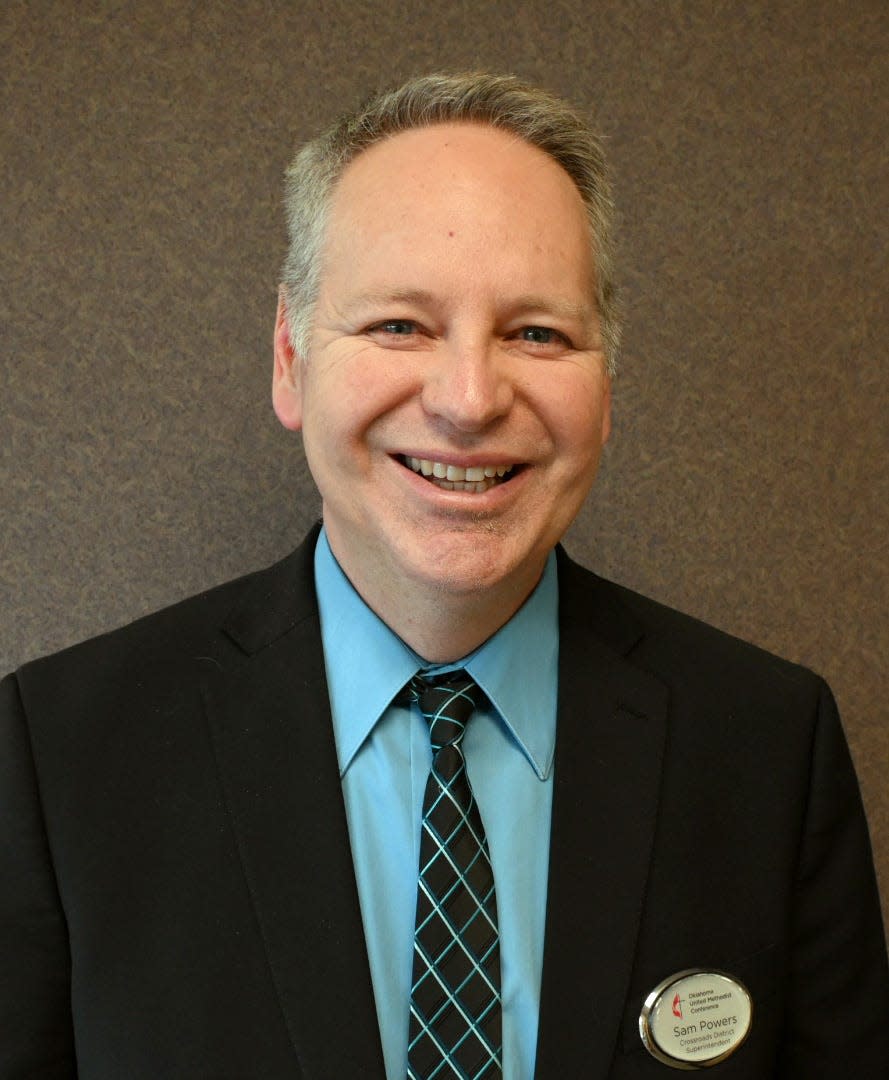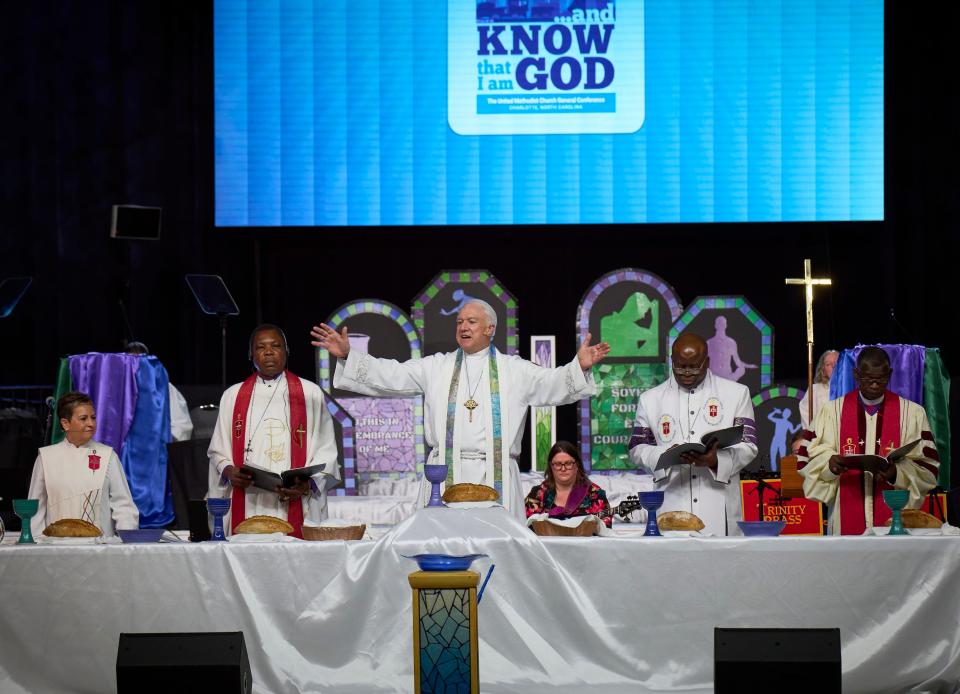'Historic' plan would allow United Methodists to establish standards according to region

Legislation approved at a long-awaited meeting is "historic" and could ultimately rework the structure of the international United Methodist Church, an Oklahoma minister said.
A new regionalization plan would create distinct geographical regions, allowing churches within each region the flexibility to make decisions that fit its area, among other things, said the Rev. Sam Powers, an Oklahoma delegate at the United Methodist Church's General Conference meeting happening now through May 3 in Charlotte, North Carolina.
Powers, of Edmond, said the plan would ultimately allow churches to adapt to their particular regional mission fields, resulting in the churches sharing the gospel more effectively.
But first, the plan must be ratified by clergy and lay members in annual conferences across the globe, and Powers said that is going to take some time.
More: Are big changes on LGBTQ+ inclusion in the United Methodist Church on the horizon?
The regionalization plan represents a major shift in the nation's second-largest Protestant denomination, particularly because it could be a possible avenue to give churches authorization for same-sex marriage and gay ordination, which the denomination currently prohibits. Increasingly contentious disagreements over same-sex marriage and gay ordination and concerns the denomination was headed in a more liberal direction caused a huge, much-publicized, years-long split in the denomination, with about 25% of some of the most conservative U.S. churches leaving the United Methodist Church.
Powers, the Oklahoma United Methodist Conference's Crossroads District superintendent, said it will take a two-thirds vote of jurisdictional church bodies like the Oklahoma conference for the regionalization plan to be officially adopted ― and that process may take at least a year.
Still, Powers said he was encouraged that General Conference delegates approved the plan by 78%.
Regionalization was one of the priorities listed in a letter signed by some members of the U.S. General Conference delegation prior to the gathering's start on April 23. Powers said he signed the letter of priorities because he saw the regionalization proposal as a way to help United Methodists outside the U.S. better navigate in a denomination that is often seen as U.S.-centric because it started in America.
Chantelle Foster, another Oklahoma delegate from Edmond, said delegates' approval of the plan on Thursday was a "positive."
"It's a very exciting thing for me because I felt like it was a good step towards a good future for the denomination," she said. "This gives us the ability to contextualize the Book of Discipline (the denomination's policy book) to the United States — the central (Africa, Asia, Europe) conferences can already do that. This gives us the ability to do that, as well."
She said the plan also will help central conferences "not waste their time because they're not having to deal with United States matters."
Foster said it was important to note that the significance of the regionalization plan was not just how it will impact U.S. churches' latitude on LGBTQ+ inclusion. And Friday afternoon, she said General Conference delegates had not yet voted on making the United States its own region.
"We're not there yet ― it's a step," she said of the LGBTQ+ inclusion possibilities.

According to United Methodist News, the official news outlet of the United Methodist Church, under the regionalization amendment approved by General Conference, each regional conference would have the authority to:
Establish and publish a regional Discipline with legislation and provision pertaining to church structures within its boundaries, including qualifications and educational requirements of clergy and specialized lay ministries.
Set standards of character and other qualifications for the admission of lay members.
Establish and publish a regional hymnal and ritual of church, including for marriage and burial. The rites approved would need to be in line with core doctrines of the United Methodist Church and in accordance with local laws.
Allow the annual conferences to adopt structures adequate to their mission while upholding General Conference-mandated structures.
The news outlet said the amendment also requires regional conferences to recognize annual conferences as the basic bodies of the church, especially on all matters relating to the character and conference relations of its clergy members. The amendment also requires regional conferences to be in line with national laws and not to stray from the Articles of Religion and Confession of Faith that contain the denomination’s core belief in Christ’s resurrection, the Trinity and the sacraments of baptism and communion.
Concerns over missing delegates
Some at the gathering expressed concern about the number of delegates missing from the meeting, especially from Africa.
Powers said there were concerns that there were more absentee delegates this year than there had been in the past, but he said every General Conference has had delegates who did not attend the gathering for various reasons. Many delegates living outside the U.S. were faced with travel visa application backlogs toward the end of the COVID pandemic, and that was one of the reasons the meeting was postponed several times.
In a news release distributed just days before delegates were to meet in Charlotte, the Commission on the General Conference said it had begun offering visa help to delegates earlier than usual, hoping to avoid delays and absences. Powers said in the past, delegates have missed the General Conference due to visa status but also unrest in their region of the world.
Powers said even if the missing delegates had been present and voted against the regionalization plan, it would have still had the two-thirds majority of votes necessary to pass.
What's ahead?
The approval of the regionalization plan occurred much earlier than many delegates expected, but more big decisions are likely ahead.
Next week will include debate and possible legislation overturning the denomination's same-sex marriage and gay ordination ban.
This article originally appeared on Oklahoman: United Methodists new regionalization plan would allow flexibility
